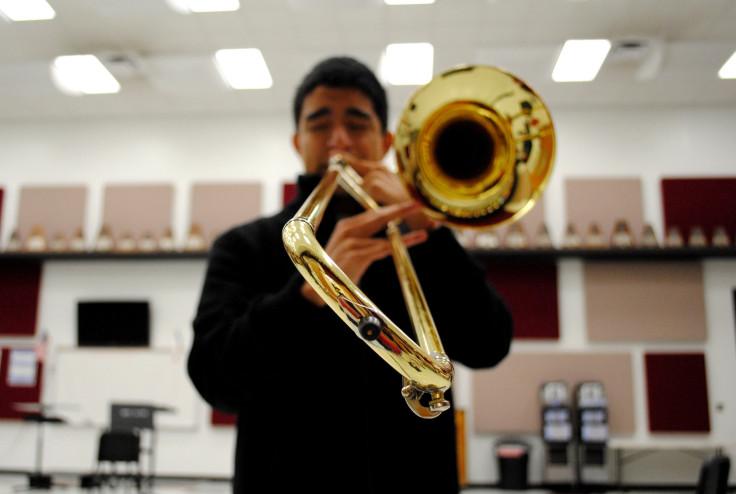Taking A Music Class In High School Improves Teen Language Skills, May Boost Academic Performance

Nina Kraus, director of the Auditory Neuroscience Laboratory at Northwestern University School of Communication, has produced a multitude of studies showing the importance of sounds and hearing when it comes to development. In children, she recently told NPR that reading begins not with our eyes but with the way our ears, and brains, analyze and codify speech sounds — this developmental facet holds true in a person’s teens, too. According to a new study from Kraus, musical training in high school can strengthen a teen’s hearing and language skills, and improve academic performance.
From birth until a person’s mid-20s, the brain undergoes constant development. In adolescence especially, the brain goes through a period of maturation in which the number of synapses in gray matter drops. Despite losing neurons, however, the brain is becoming more efficient. Certain regions mature faster than others, with the ones responsible for the most basic processes, such as processing information and motor control, going first. While genetics plays a role in how the brain matures, life experiences do as well, according to the National Institutes of Health.
It’s for these reasons that musical training improves teens’ development. The study, published in the Proceedings of the National Academy of Sciences, involved 40 freshman high school students who either attended music classes for two to three hours each week or joined a junior Reserve Officers’ Training Corps (ROTC), which emphasized fitness. It found that those who learned music experienced faster maturation in the brain’s response to sound, and heightened sensitivity to details in sound. While all students showed improvement in language skills necessary for reading, it was those who underwent musical training that performed the best three years later.
“While music programs are often the first to be cut when the school budget is tight, these results highlight music’s place in the high school curriculum,” Kraus said in a press release. “Although learning to play music does not teach skills that seem directly relevant to most careers, the results suggest that music may engender what educators refer to as ‘learning to learn.’”
The findings have important implications for teens in low-income neighborhoods, as their language development is often below that of their wealthier counterparts. Previous research from Kraus found learning music can help these teens succeed, but they’ll need to engage themselves. But perhaps the best benefit to musical training, Kraus found, was that the developmental outcomes strengthened the brain well enough to stall cognitive decline later in life. If that’s not enough of a reason to learn music, we don’t know what is.
Source: Tierney A, Krizman J, Kraus N. Music training alters the course of adolescent auditory development. PNAS . 2015.



























